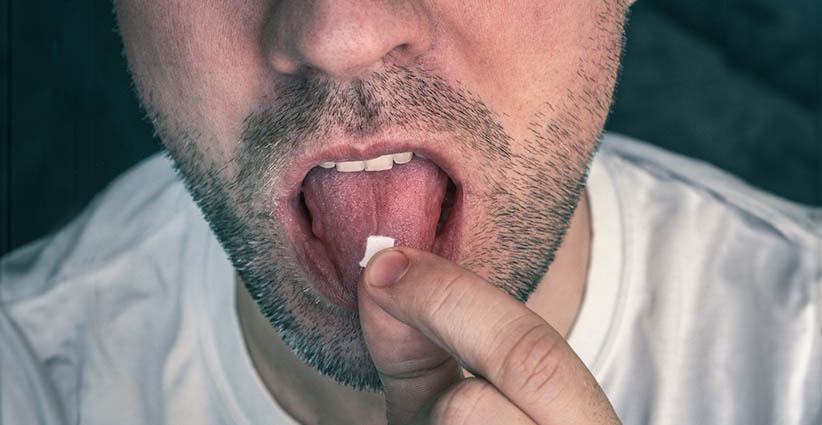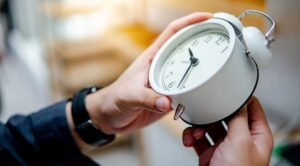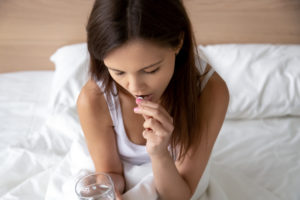Study Finds Microdosing LSD May Enhance Sleep

From prescription drugs to herbal remedies, there’s a long list of substances that people take to try to get better sleep. A new study by researchers in New Zealand suggests that microdosing LSD may warrant future consideration for being on that list.
The study found that people who took an extremely small dose of LSD during the daytime slept longer and had more rapid eye movement (REM) sleep one day after taking the drug.
LSD, also known as acid, is a potent drug with a history of psychedelic use dating to the 1940s. At typical doses, it triggers intense hallucinations, or trips, from its effects on the chemical serotonin in the brain.
The recently published study is an example of surging interest in potential medical uses of psychedelic drugs like LSD, ayahuasca, and psilocybin, also known as magic mushrooms. Some of this research focuses on whether these drugs can have an impact without inducing a trip.
Microdosing is the use of tiny amounts of a psychedelic — usually no more than one-tenth of a normal dose — so that it produces no hallucinations. Few studies have rigorously examined the effects of microdosing, but proponents often claim it promotes better mood, productivity, and creativity.
In the recent study in New Zealand, 80 people agreed to regularly take either a microdose of LSD or a placebo, and neither the researchers nor the participants knew which they took. Doses were given once every three days to prevent the development of any tolerance to LSD. Throughout the study, participants wore a Fitbit device that tracked their physical activity and sleep.
After six weeks, the researchers analyzed the sleep tracker data. They found no differences in sleep on the day of microdosing. However, on the following day, people taking LSD went to bed earlier and slept an average of 24 minutes more than the people taking a placebo. They also got around eight more minutes of REM sleep.
While intriguing, these results do come with caveats. The study was small and only included men between 25 and 60 years old who had no history of mental health problems. It also relied on sleep tracker data, which is not always accurate in measuring sleep quantity or sleep stages.
These limitations should give caution to anyone considering microdosing, which requires further research to understand its risks. Individual reactions to psychedelics can vary, and small surveys have suggested that microdosing can have a negative effect on sleep for some people.
It is also essential to recognize that this research was performed under careful conditions that are difficult to replicate outside of a study. LSD remains illegal in the United States. As a black market drug, it may be contaminated by dangerous chemicals like fentanyl, and its potency can be unpredictable.
But within the broadening research landscape around psychedelics, this study may point toward a future application of microdosing. To that end, the same research team at the University of Auckland is in the process of doing a similar study involving people with major depressive disorder. This and other studies may contribute to a better understanding of whether microdosing can play a role in improving sleep.
Got a hot tip? Pitch us your story idea, share your expertise with SleepFoundation.org, or let us know about your sleep experiences right here.
References
4 Sources
-
Allen, N., Jeremiah, A., Murphy, R., Sumner, R., Forsyth, A., Hoeh, N., Menkes, D. B., Evans, W., Muthukumaraswamy, S., Sundram, F., & Roop, P. (2024). LSD increases sleep duration the night after microdosing. Translational Psychiatry, 14(1), 191.
https://pubmed.ncbi.nlm.nih.gov/38622150/ -
Dyck, E. (2015). LSD: A new treatment emerging from the past. Canadian Medical Association Journal, 187(14), 1079–1080. Advance online publication.
https://pubmed.ncbi.nlm.nih.gov/26243813/ -
A.D.A.M. Medical Encyclopedia. (2022, April 30). Substance use – LSD. MedlinePlus., Retrieved April 24, 2024, from
https://medlineplus.gov/ency/patientinstructions/000795.htm -
National Institute on Drug Abuse. (2023, April). Psychedelic and dissociative drugs., Retrieved April 24, 2024, from
https://nida.nih.gov/research-topics/psychedelic-dissociative-drugs













































































